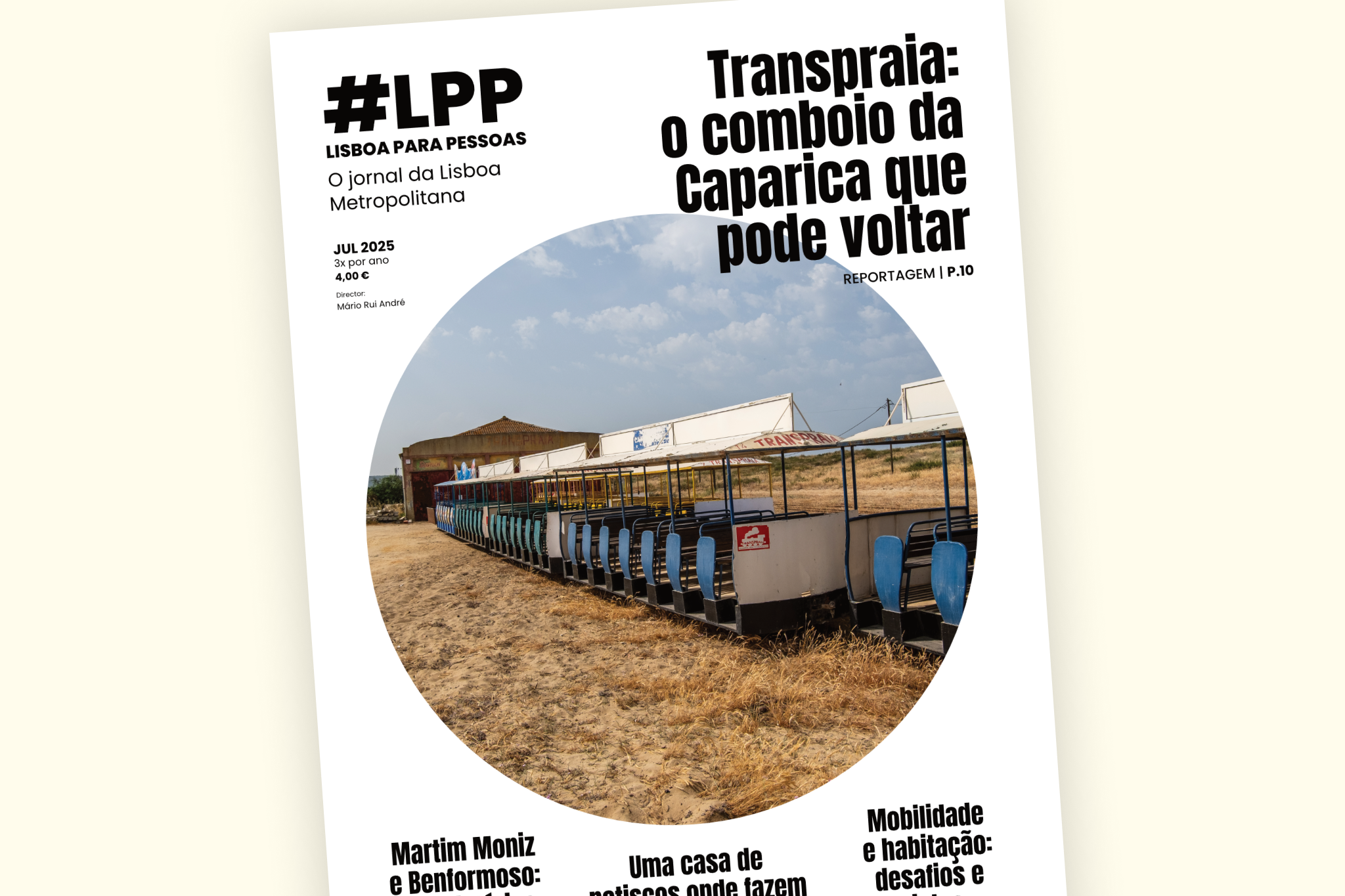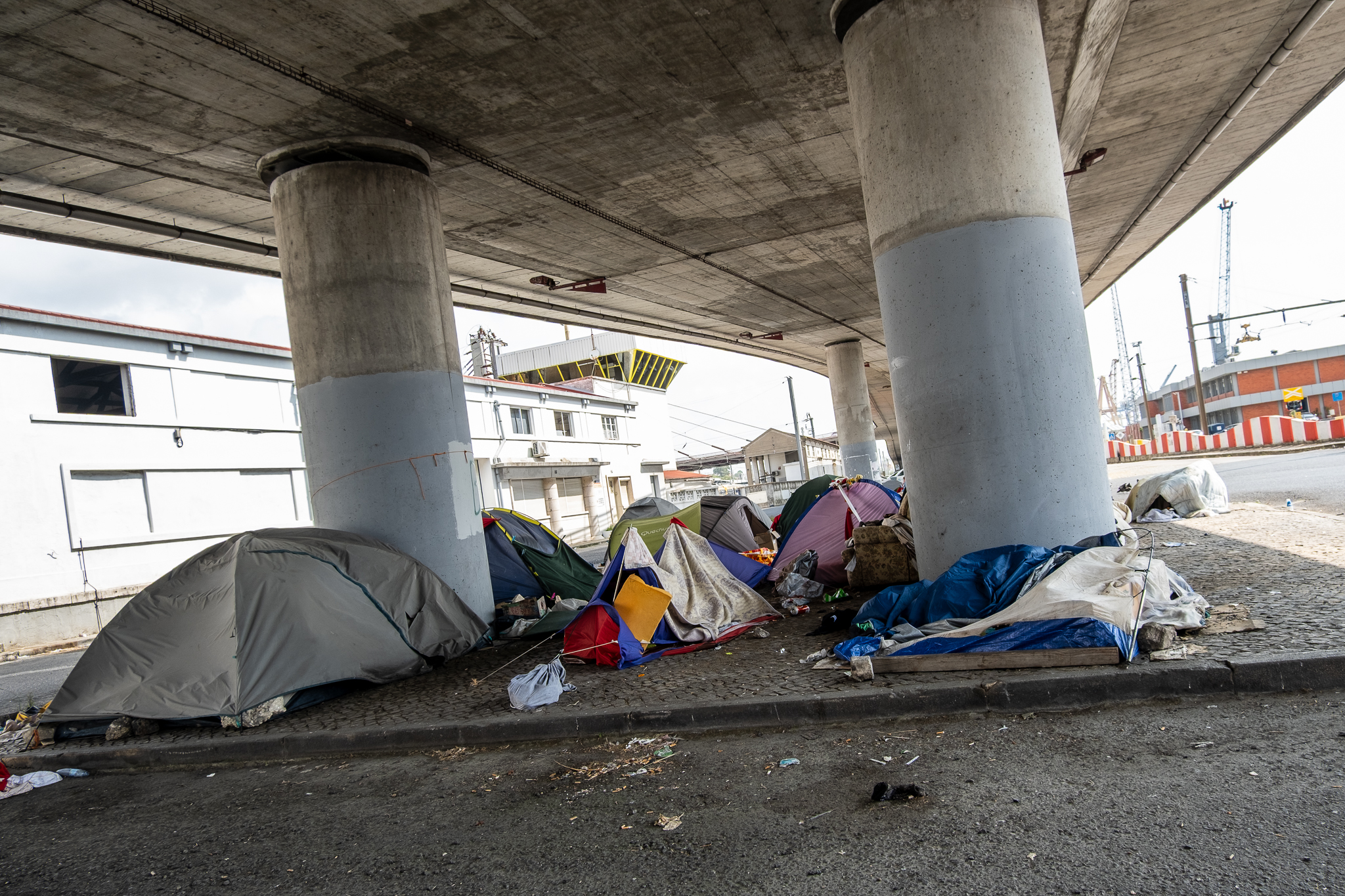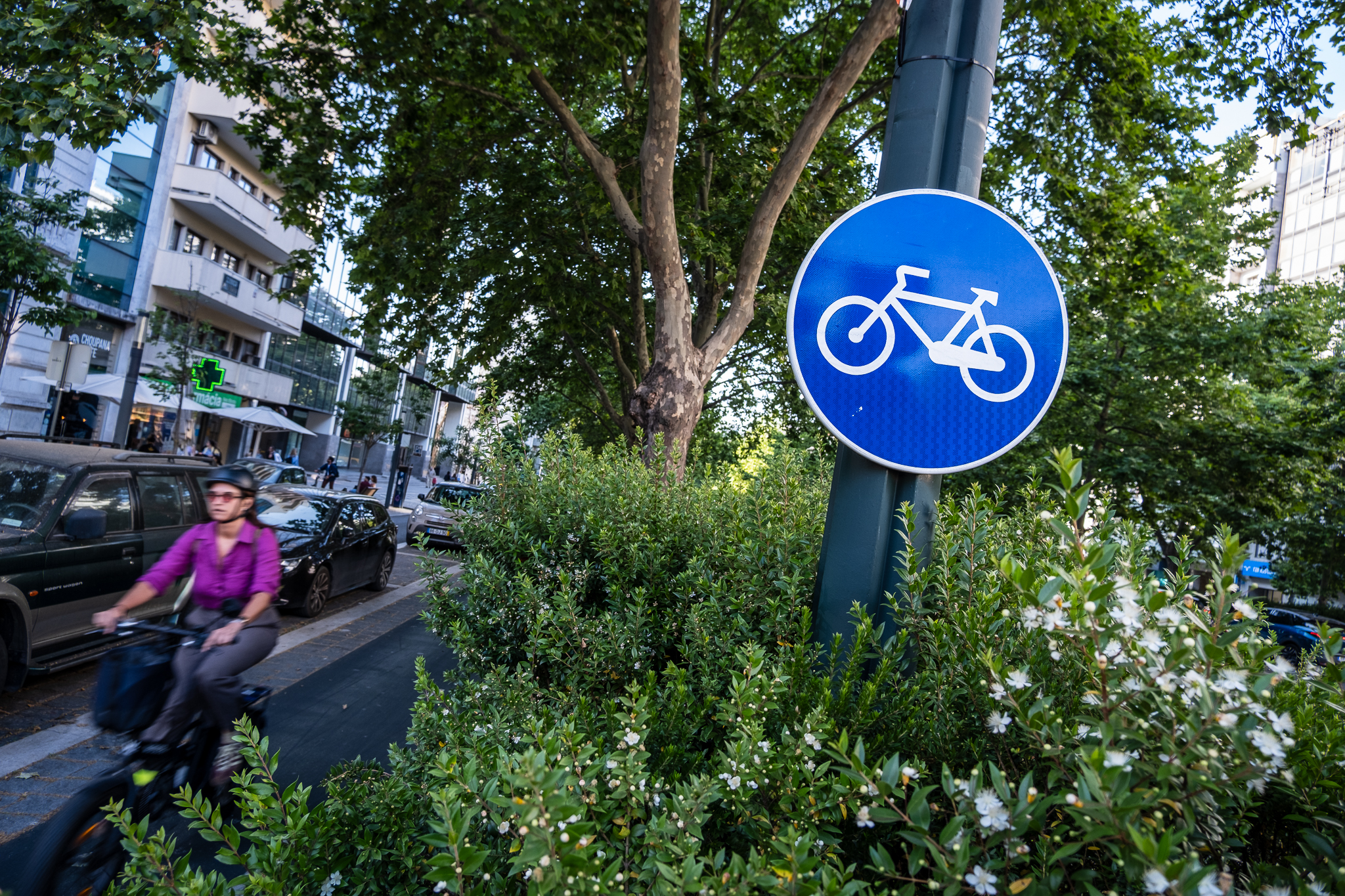The Mais Habitação package of measures is in public consultation until March 10. You can send your contributions about the measures announced to the Government.

More Housing is the name of the package of measures that the Government presented on February 17th to respond to the housing crisis that has been growing in the country. "Housing is today a central and transversal concern of Portuguese society because it concerns all families, not only the most needy"but also "to young people and middle-class families"said the Prime Minister, António Costa, during the presentation of the program. The measures are under public discussion until March 10, and anyone can submit comments, criticisms, and suggestions for improvement.
The package presentation More Housing was held at a press conference after a Council of Ministers meeting dedicated exclusively to Housing. Besides António Costa, Marina Gonçalves, the Minister of Housing, who succeeded Pedro Nuno Santos earlier this year, and Fernando Medina, the Minister of Finance, were at the press conference. According to the Government, after the participative process of public discussion now underway, part of the measures presented - those that respond more directly to the needs of families - will be approved definitively, by decree-law, by the Government; the rest will be sent to the Assembly of the Republic in the form of a draft law.
How did we get here?
The Package More Housing is a kind of emergency response by António Costa's government to the housing problem, responding to the new economic context. In the past, more specifically in 2018Costa's executive had already presented another package - New Generation of Housing Policies (NGPH) - with the aim of "ensure access to adequate housing for all" and "create the conditions for both building rehabilitation and urban rehabilitation to go from exception to rule".
The New Generation of Housing Policies introduced, for example, the Affordable Rental Programwhich aims to promote affordable rents with tax incentives for landlords; or the Porta 65 Youthwhere young people up to the age of 35 can benefit from a kind of subsidy from the government to lower their rent. The NGPH also introduced policies to promote rehabilitation of vacant buildings, energy efficiency (such as the Efficient House 2020) or territorial cohesion - such as the TurnkeyThis is a program that allows families living in areas of high urban pressure to move to low-density areas and make their other housing available for affordable rental.
Already in 2019, the government has approved the Housing Basis Law, which "establishes the bases for the right to housing and the fundamental duties and tasks of the state in effectively guaranteeing this right to all citizens, under the terms of the Constitution".
Already this year, on January 20, saw approved in the Assembly of the Republic o National Housing Program (PNH)which comes with two dozen measures, a time horizon of five years (2022-2026), and a total budget of 2,377 million euros. THE NHP "establishes the objectives, priorities, programs and measures of the national housing policy" and should be reviewed every five years, i.e., in 2026 the first review should be done. This Program organizes the housing policies already in place, improves them and adds new initiatives. The big goal is to increase from 2% to 5% the public housing stock, that is, 170 thousand more homes that should enter the market aimed at balancing house prices and lowering household effort rates on housing expenses from 35% to 27%.
As a strategic and planning instrument, the NHP "assumes a rupture with the philosophy and principles formed". at National Housing Strategy (ENH), presented in 2015 by the government of Pedro Passos Coelho, Prime Minister at the time, which had a time horizon of 2015-2031.
More Housing
Although Portugal already has a National Housing Program valid until 2026 - and that replaced a National Strategy designed by the previous Government -, and despite the New Generation of Housing Policies (NGPH) package previously approved, António Costa's executive deemed it necessary to present more measures. The package More Housing é "a people-focused program that aims to respond to the urgent social need to make more housing and affordable housing available for families to cope with rising rents or credit payments"described Fernando Medina at the press conference.
In other words, the new More Housing responds immediately to the most recent economic context - marked by the war in Ukraine, the energy crisis, rising inflation and rising interest rates on mortgages - while the National Housing Program is for longer-term planning. Even so, More Housing will cost around 900 million Euros, one third of the NHP.
About More HousingThe government describes it this way:
"The promotion of public housing policies should not be static, but rather assume the need to create responses that are adapted to the needs felt at each moment by the population, and on a national scale, with the ultimate goal of ensuring that everyone has access to decent housing that is appropriate to the income and size of different households. Thus, this set of measures is part of a strategy supported by the National Housing Program (NHP). It is in the NHP that the government reinforces its structural commitment to public housing, with special focus on the response for families with lower incomes and average incomes. The approval, now, of a new set of measures of more immediate response, is intended to complement the structural responses already included in the NHP to mitigate the recent economic impacts, with direct effect on access to housing. In this context, an intervention plan is presented that aims to add solutions and answers to the immediate needs of families, while at the same time aiming to contribute to the structural goal of strengthening the housing supply and the resources necessary to guarantee, in fact, housing for all."
- António Costa's Government
O More Housing is in public consultation until March 10th through the ConsultaLEX portal of the Government. To participate, simply register on this platform or use the Mobile Digital Key, and comments from citizens, companies, associations and other entities are possible. The package has been much discussion in the public square in recent days, with the production of much commentary analysis in the media; there is now an opportunity for citizens and other entities to send their comments to the Government.
See here the main measures of the package:
- Convert commercial or service property use to residential use: possibility to automatically change the use of commercial or service properties into housing properties - without the need to review land use plans or the housing license - provided that at controlled costs;
- Making land or public buildings available to cooperatives and private developers for housing construction or rehabilitationwhich should be made available on the affordable rental market. The assets, with a maximum term of 90 years, will be made available through public tenders, in which innovative solutions such as modular construction will be promoted and the terms under which the houses will be made available to families will be defined;
- State leases to sublease: the State will propose the voluntary rental of properties to private individuals, namely vacant properties, subletting them with a maximum household effort rate of 35%. The contracts will have, as a rule, a minimum duration of 5 years, renewable for the same period, except when expressly opposed by either party. This model has already been tested in Lisbon, not having had much success;
- Guarantee of payment to the landlord after three months of default: In order to give more security to the landlord and reduce the risk of default by the tenant, the State will assume the payment of the rents in default, as long as they are situations of default that are motivated by a socially acceptable cause. The State will then evaluate the tenant's situation and may collect the debt by the legal means that are currently at its disposal for any other debt, or, in situations of lack of means, guarantee the articulation with Social Security so that this family may be supported, with a view to defining a stable housing alternative;
- Incentive for the transfer to housing of houses in Local Lodging: To ensure a balance between housing responses and the continuity of Local Lodging (AL), the Government is proposing to exempt from IRS until the end of 2030 those who convert their AL to housing and enter into rental contracts until the end of 2024. Your AL will have to be registered by the end of 2022;
- Creation of an Extraordinary Contribution on Local Lodging (CEAL): This extraordinary contribution, valid for each LA, will be used to finance affordable housing policies and will vary according to operating income, the evolution of rents and the weight of Local Lodging in the area;
- About AL licenses: All new AL licenses will be suspended except in rural areas (the specific criteria is still to be defined). Current licenses are to be reviewed in 2030 and new licenses subject to non-automatic five-year renewal. There will also be the possibility for condominiums to terminate licenses issued without their approval, and an extension of the competences of inspection of ALs to the parish councils;
- Mandatory leasing of vacant houses: the State may, for reasons of public interest, mobilize vacant property to be placed on the rental market. The rental will be facilitated by the State with the payment of rents to landlords. Vacation homes, homes owned by emigrants or displaced persons, or homes whose owners are in a social facility, such as an old people's home, will naturally not be included. This forced lease, a term that already exists in law today, presupposes the existence of a prior legal duty to put the property to use. That is: the duties of the owners are, in themselves, restrictions to the right of ownership. If the owner does not want to rent to the State, he will be given a formal deadline to put the property to use. Only at the end of this period can the State lease the property in a compulsory manner, considering the public interest that is concretely determined;
- Tax incentives for affordable rental: To expand the supply of affordable rentals, the Government is proposing a set of tax incentives, such as a 6% VAT rate for construction or rehabilitation work, IMT exemption on the acquisition for rehabilitation of buildings, and also IMI exemption for three years after acquisition, construction, or rehabilitation, extendable for another five years;
- End of Golds visas: the government wants to put an end to the attribution of new Gold visas. In the case of the renewal of those already granted, every two years, this can only occur: 1 - if the property is allocated to the owner's own and permanent residence, or a descendant; 2 - if it is the object of a rental contract for own and permanent habitation for a period of not less than five years. With this new legal regime for the entry, stay, exit, and removal of foreigners from the national territory, the granting of visas for special purposes will continue to be possible, and must follow the legal procedures;
- Guaranteed fair rent in new contracts: The objective is to stabilize rents in new contracts in line with the rents freely defined by landlords in previously entered into contracts (in the last five years). In properties that were already in the rental market in the last five years, the initial rent in new contracts cannot exceed 2% in relation to the previous rent. There will also be a extraordinary rent payment support for households with high effort rates (> 35%) and with leases signed until the end of 2022;
- Measures for homebuyers: banks will be required to provide a fixed-rate mortgage alternative and there will be government support for credit rate hikes throughout 2023, this through a temporary subsidy up to an annual limit of around 720 euros;
- New Porta 65+ program to help families that will have some situation of greater vulnerability during the lease contract. This is a permanent program that will seek to extend the Porta 65 Jovem support to situations of greater vulnerability (namely a drop in income greater than 20% or single-parent families). This new support will operate under the same conditions as Porta 65 Youth, for a maximum period of 60 months, using the same platform and the same application deadlines;
- Protect tenants with older leases - leases from before 1990 that have not transitioned to the so-called New Urban Lease Regime (NRAU) - and ensure fair compensation from the landlord. Tenants can keep their rents low and landlords are guaranteed IRS and IMI exemptions, as well as a financial compensation, to be regulated, for not increasing rents;
- Other measures: create a Single Window for Renting that aggregates different services (and the already existing National Window for Renting) and facilitates access by people (tenants and landlords) to information on renting; allow the approval of housing architectural projects based on the terms of responsibility of the authors of these projects, with an aggravated system of sanctions in the case of non-compliance with legal and regulatory norms; incentives for the purchase of ready-to-move-in properties by the State with a total reduction in the associated tax burden; a line of funding for municipalities to carry out the coercive works they determine in buildings that need them; new tax norms to encourage leasing, such as an alteration to the reduction in the IRS rate for long-term contracts; a line of funding for private individuals for projects in the area of accessible housing, namely for construction or rehabilitation, to a maximum total amount of 250 million Euros.
You can learn more about these measures in the documents below. And until March 10th you can send contributions to the Government through this platform.






